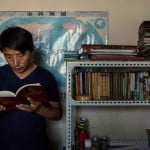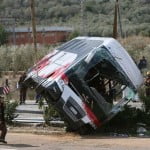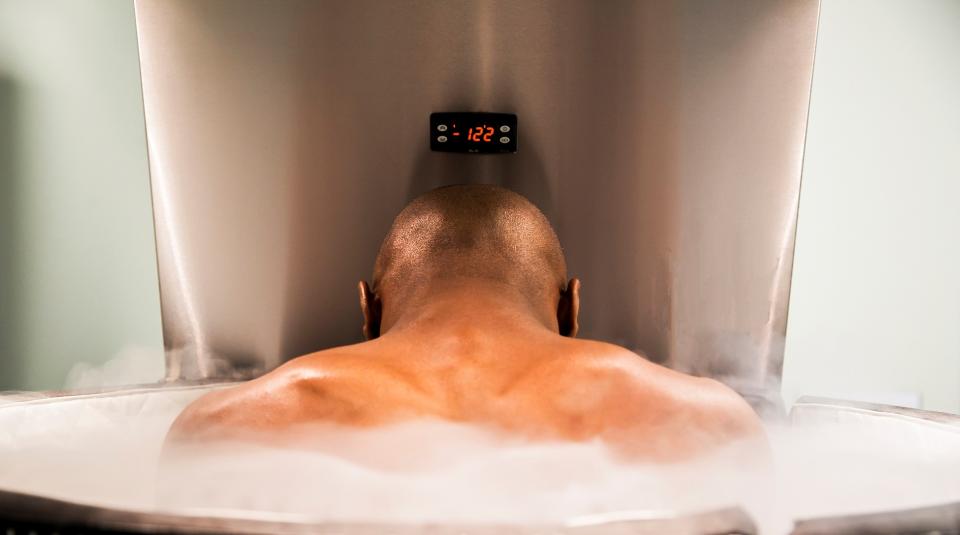
POCATELLO, Idaho — When the Rev. Jim Jones, pastor of the Blazing Grace Church here, approached the lectern at City Hall, he was holding a copy of the Quran.
The Islamic text commanded followers to embrace intolerance, hate and violence, he told the zoning panel, explaining why he felt uncomfortable with the plan of Middle Eastern students at Idaho State University to build a mosque within walking distance of campus.
“I get very fearful because I live close to this place,” Mr. Jones told the panel, which was considering a rezoning request.
The mosque was approved. But the remarks by Mr. Jones and other opponents at the February 2014 hearing were signs of the fissures developing in this railroad town as Idaho State became increasingly dependent on Saudi and Kuwaiti students to replace income lost from steep declines in local enrollment and state funding.
The potential payoff of having these students was big — $20,000 per student in annual out-of-state tuition, nearly three times what state residents pay. As the number of Middle Eastern students grew to nearly 1,200, almost 10 percent of the school’s enrollment, that meant an estimated $40 million for the local economy every year.
But Idaho State had not bargained for the cultural clash in this isolated community. Even if they were just normal, rowdy college kids, the behavior of the mostly male students stood out in this conservative, predominantly Mormon city. Free from the strict cultural mores of their home countries, some students have faced charges like drunken driving and stalking.
At the same time, professors said students, many of them unfamiliar with English, were ill-prepared and frequently resorted to cheating.
Continue reading the main story
Students have taken umbrage to the accusations, and have recounted episodes of discrimination on campus and in town. Now some students are leaving.

For Idaho State, it is a moment of truth, with a loss of more than $2 million a year in tuition alone from 100 students who left last summer. More declines are expected.
“We’re preparing for the worst,” said Scott Scholes, the associate vice president for enrollment management.
As colleges across the country, including prestigious universities like the University of California, Berkeley, second-tier state universities and little-known private institutions, look to make up for budget cuts and declining enrollment by accepting more foreign students, the situation at Idaho State is a cautionary tale, an example of the complexities of integrating foreign students into a campus and a community.
By some estimates, the one million international students in the United States generate a $30.5 billion boost to the economy. The largest group comes from China, but Saudi Arabia, the fourth-largest country of origin, supplies more than 70,000 students to schools like Arizona State, Western Kentucky, Cleveland State and Southern Illinois.
Some of these institutions are particularly concerned about the impact of a recent announcement by the King Abdullah Scholarship Program, which supports most of the students from Saudi Arabia. The program is facing “deep funding cuts,” according to Moody’s Investors Service, which said the scholarships would be limited to the top 100 American schools, an Academic Ranking of World Universities list that does not include Idaho State.
The Saudi Arabian Cultural Mission to the United States, which administers the scholarship program, did not respond to requests for comment.
Mr. Scholes said new limits established by the Saudi and Kuwaiti governments might mean that no Middle Eastern freshmen will be arriving at Idaho State for the next academic year, cutting enrollment by more than 250, on top of the 100 Saudi students who have already departed.
Explaining another reason for the declining enrollment, Daniel Hummel, a political-science professor who is also secretary of the new mosque, said, “Some of the students are dissatisfied, and they’re leaving.”
Although this virtually all-Christian city does not appear to be a natural fit for Muslims — the courthouse lawn features a monument chiseled with the Ten Commandments — everything seemed fine when the first 17 Saudi students arrived in 2006, mostly in the engineering school. Over time, the students began sending word back home about Pocatello’s attributes, particularly the low cost of living, said Nezar Alnejidi, a marketing major and student leader. On a monthly stipend of about $1,850, students could pay their room and board and have money to spare.

As the number of Saudi students grew, Kuwaiti students also began to arrive. Sales of Mustangs soared at a local car dealership. Abandoned storefronts downtown reopened with hookah lounges and Middle Eastern restaurants. Merchants and landlords relished the business. “The economic impact has been humongous,” said Dave Packer, the president of the Pocatello Rental Housing Association.
But the students also brought unease. On campus, several professors said their colleagues chafed at the extra work required of them because of the poor English skills of many students who needed help after class. Some professors also believed the students did not have the proper math backgrounds for their chosen majors: A chart sent to the faculty by one dean revealed that in some classes with more than 20 Middle Eastern students, 90 percent of them had failed physics, 75 percent had failed introductory English, and more than 60 percent had failed math.
David Rodgers, an associate dean of science and engineering, described the challenges many students have faced.
“In engineering, every single class is scripted,” Dr. Rodgers said. “There’s not a lot of room for a screw-up. If you fail a class, you can make it up perhaps by taking 18 hours the next semester. You know your funding is running out. You know you’ve come to America to be an engineer. The cultural change, the language barrier, all these things stress kids.”
That might explain why several professors said Middle Eastern students seemed prone to cheating and plagiarism. Eighty percent to 90 percent of the cheating cases reported in recent semesters in engineering and science have involved foreign students, Dr. Rodgers said.
The university has bought antiplagiarism software, installed cameras, and gone so far as to track the Internet addresses of submitted papers, but Martin Hackworth, a departing physics lecturer, said the response was inadequate.
Mr. Hackworth wrote a column in The Idaho State Journal last year with accusations that Middle Eastern students had cheated, and criticism that the university had accepted students who were unprepared.
“They viewed these students as A.T.M. machines,” Mr. Hackworth said in an interview.
While admitting that some Middle Eastern students had cheated, Ali Alheid, 22, a mechanical engineering major from Kuwait, complained that the university had painted all of them with a broad brush. “They caught 20 or 30 students cheating,” he said. “Because of that, they treat us like cheaters.” Professors and proctors have sometimes prohibited bathroom breaks during exams and looked between students’ legs for hidden cellphones.
The cheating accusations are one reason Mr. Alnejidi is now telling friends not to come to Idaho State.

“The Saudi students are leaving because they feel they will not graduate under that level of scrutiny,” he said.
On a recent afternoon at the engineering school, groups of Middle Eastern students chatted outside. Inside, Saudi students worked in a basement laboratory on a virtual shield to protect United States borders from incursion, both by undocumented immigrants — and terrorists.
Mr. Alheid said that at a gathering of students last month for Kuwaiti National Day, more than 100 signed a petition complaining of discrimination on campus and in town. He plans to transfer to Arizona State. “They think we are terrorists,” said Mr. Alheid, describing several episodes.
As he drove his Mustang one night to a gym and tried to park, a car with an open door blocked his parking spot. When Mr. Alheid complained, he said, the man flashed a handgun at him. On another day, a middle finger was directed his way as he approached the newly built mosque, he said.
While acknowledging instances of discrimination, officials and professors say some of the students have done little to adapt. Some have made inappropriate overtures toward women, according to the Police Department. Others have raced their sports cars on city streets and, unaccustomed to local laws, ignored speeding tickets.
“I don’t think they understand that they have to pay a fine,” said Zachary Parris, the chief deputy prosecutor, whose office held a seminar on campus to educate students on city ordinances.
Jim Peterson, the deputy police chief, said, “I would say they get away with a lot more here than they do at home.”
Things came to a head last May, when The Idaho State Journal reported price gouging by landlords, who defended the extra fees with claims that the Middle Eastern students had damaged apartments. Among the problems, according to the newspaper: carpets burned by hookahs.
That is when Eva Nye, then a City Council member, wrote a columnurging Pocatellans to be nicer to the students. By that time, the students were packing the mosque for Friday Prayer.
“It put some people on edge, and they felt certain that a jihad was going to occur in Pocatello,” Ms. Nye said.



